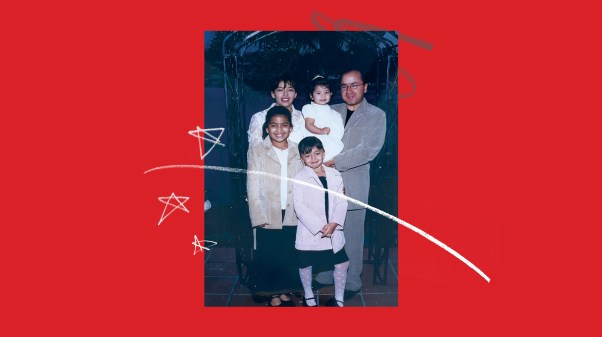“Now look, darling, I think Penelope ought to get married soon. She needs to be fulfilled, and more involved in life. I mean, she just needs something, anyone can tell. So I got her to fill out that card to take to the computer place—you stick in all the things that are important, like whether you like peanut butter and whether you like to sleep with the windows open and how you feel about animals and what you are allergic to. She’s already got an answer back, from just the right person, the computer said. The wedding ought to be soon.”
“Darling, everything is ready for the wedding tomorrow, but the most disastrous thing has happened. Penelope and Jack are perfect for each other—you know the computer doesn’t make any mistake. When they decided they both wanted to be missionaries, the mission-board computer took their cards and found out that they were just right for India. So here they are, all ready to go after their honeymoon to the school where they are to train first. Now comes the disastrous part. The school has a psychiatric test each one has to take to get in, and the most horrendous thing was found out about Jack: he’s a sesame seed! A sesame seed is a type, you know—the type that has a need to be admired by Indian women. It seems India would be the wrong place altogether—they’d be divorced within two years. A sesame-seed type is always like that. What are we going to do? When the computers and the psychiatrists clash there just isn’t anywhere to go next! I thought it would all be so easy, sure. No trial and error as in our grandparents’ day. But now this …”
Exaggerated? Not very. It is the direction evangelical groups are in danger of being sucked into. It is difficult to stand against the pull of twentieth-century solutions.
It is easy to take the first steps away from the reality of God’s existence. It is easy to take the first steps away from any practical difference God’s existence makes in our choices, in our daily lives. It is so easy to go to Egypt for help, and to forget that our help is supposed to come from the Lord.
Listen: “Woe to the rebellious children, saith the LORD, that take counsel, but not of me; and that cover with a covering, but not of my spirit, that they may add sin to sin: that walk to go down into Egypt, and have not asked at my mouth; to strengthen themselves in the strength of Pharoah, and to trust in the shadow of Egypt! Therefore shall the strength of Pharaoh be your shame, and the trust in the shadow of Egypt your confusion” (Isa. 30:1–3).
The warning is that if we as children of the Lord don’t come to him for counsel, don’t ask him for help, the strength of the help apart from him will be our confusion. This is the picture of our pushing aside the fact that access to the living God, the Creator of all the earth, the One who has all wisdom and understanding, the One who knows the future and can give counsel in the light of what is coming, is really open to us. We are told that he will help us; we are told to ask him for help; we are assured that as the Lamb died as our substitute, he also died to open the way directly to the Father with our requests. To spurn this offer of help, paid for with such costly sacrifice, and to seek “counsel but not of me” is to bring about an opposite result.
The contrast is made clear in another place in Isaiah: “For the Lord GOD will help me; therefore shall I not be confounded: therefore have I set my face like a flint, and I know that I shall not be ashamed.… Who is among you that feareth the LORD, that obeyeth the voice of his servant, that walketh in darkness, and hath no light? Let him trust in the name of the LORD, and stay upon his God:” (Isa. 50:7, 10).
We may come frequently to foggy, dark places where we can’t see one step ahead. This is the place for showing God our trust of him, for taking literally the possibility of asking and then waiting for him to answer. The seventh and tenth verses combined offer a contrast to the eleventh, which is another warning of the same sort. Here is the picture given very vividly, along with another promise of a strongly negative result: “Behold, all ye that kindle a fire, that compass yourselves about with sparks: walk in the light of your fire, and in the sparks that ye have kindled. This shall ye have of mine hand; ye shall lie down in sorrow.”
A strong promise! If we refuse to wait in the dark place with our hand in God’s in trust, asking him to show us the next step, really depending upon him in prayer to answer us in this moment of history, and instead make all our own plans to unscramble our difficulties with all the “modern helps” we can find, God will not stop us—we can go on and light our own sparks and walk in the light of them. However, we can expect him to be speaking the truth when he says that the result will be that we “lie down in sorrow.”
“Ask of me”: this instruction is given to us over and over again. We are to be shown marvelous things as a result of asking. When can we be shown if we never ask at times when we are in drastic need of God’s solutions? As individuals, as twos and threes in a variety of relationships, family, friends, groups, churches, organizations—we need to demonstrate that we really believe God is there, he is accessible, and his promises are true. We need to demonstrate that we really believe his negative promises as well as his positive ones by the way we react to our need of help. We need to stop and consider whether we are in danger of showing that we really think “Egypt’s help” is more dependable.
How can we demonstrate to the angels and demons as well as to anyone who might be affected by our manner of reacting to a difficulty that we really believe in the existence of the God of the Bible? We are told to pray “without ceasing”—how much more thoroughly can we cease to pray than by turning our backs on the practical reality of God’s answering prayer?
“Call upon me in the day of trouble.” God speaks to each of us in our diversity of trouble—trouble in making a decision, trouble in finding the right house, trouble in knowing what we are fitted to do. “Call upon me in the day of trouble: and I will deliver thee, and thou shalt glorify me.” Here is a result that does not speak of shame or confusion. Here is a result to be excited about, given in Psalm 50:15. If we lack wisdom, we are to ask of God.










